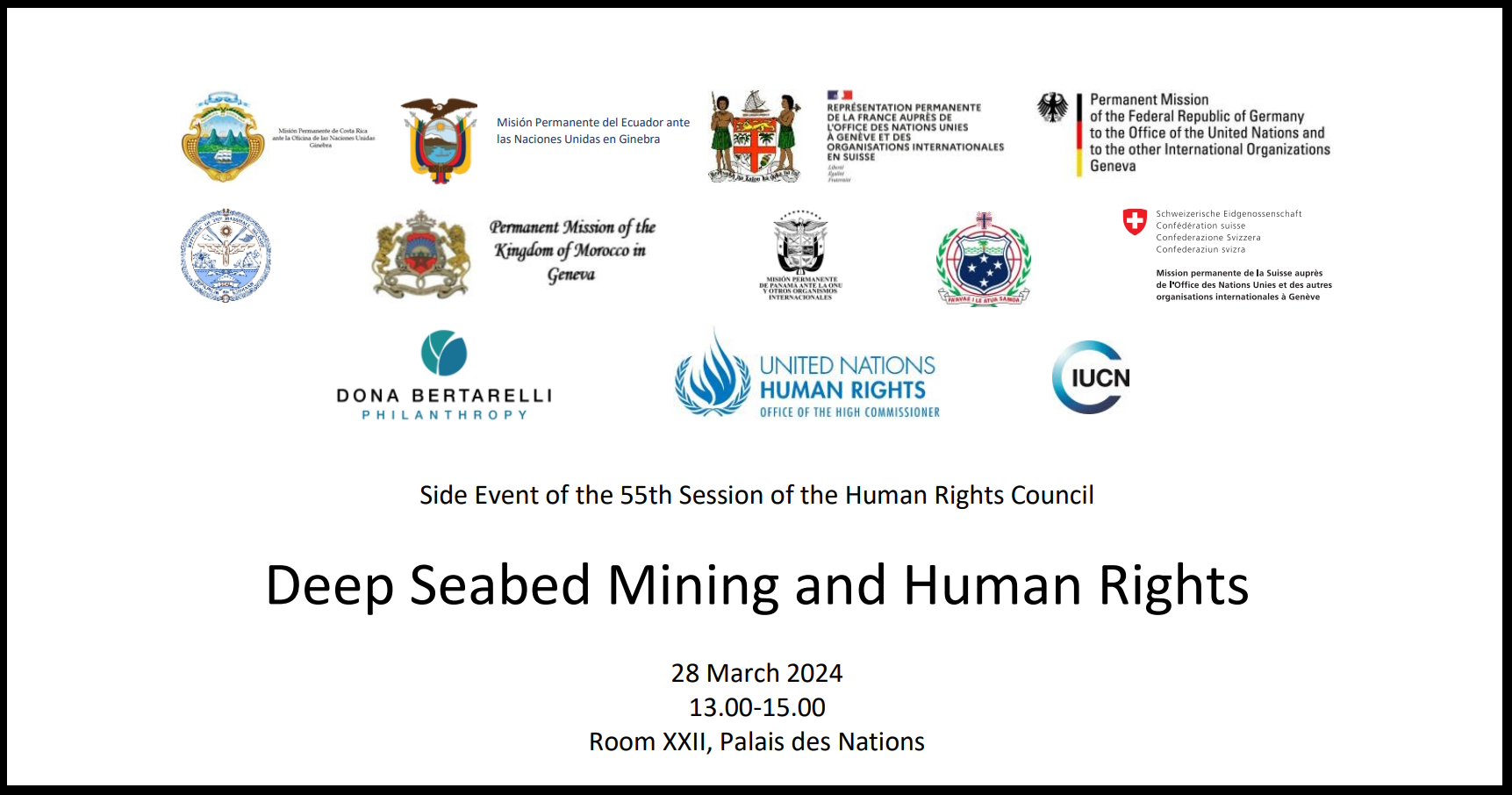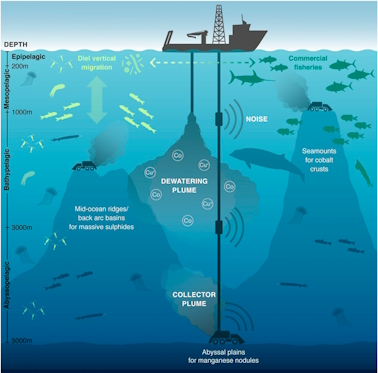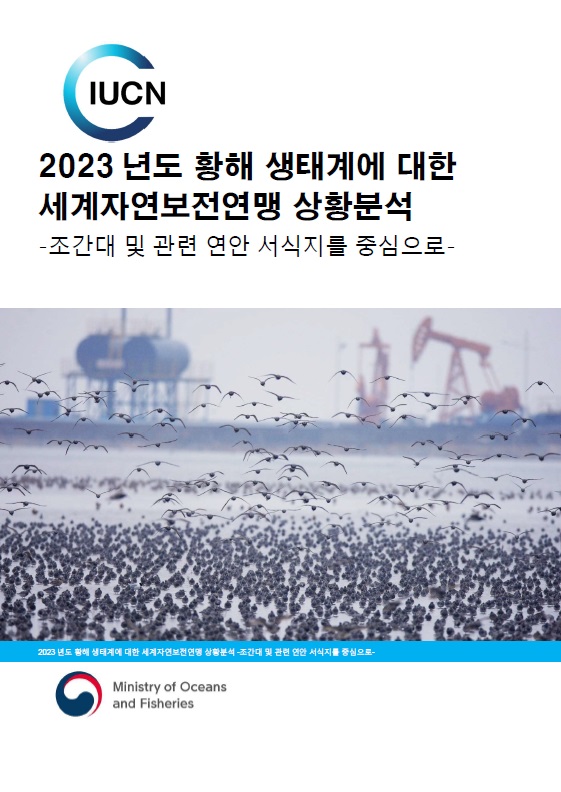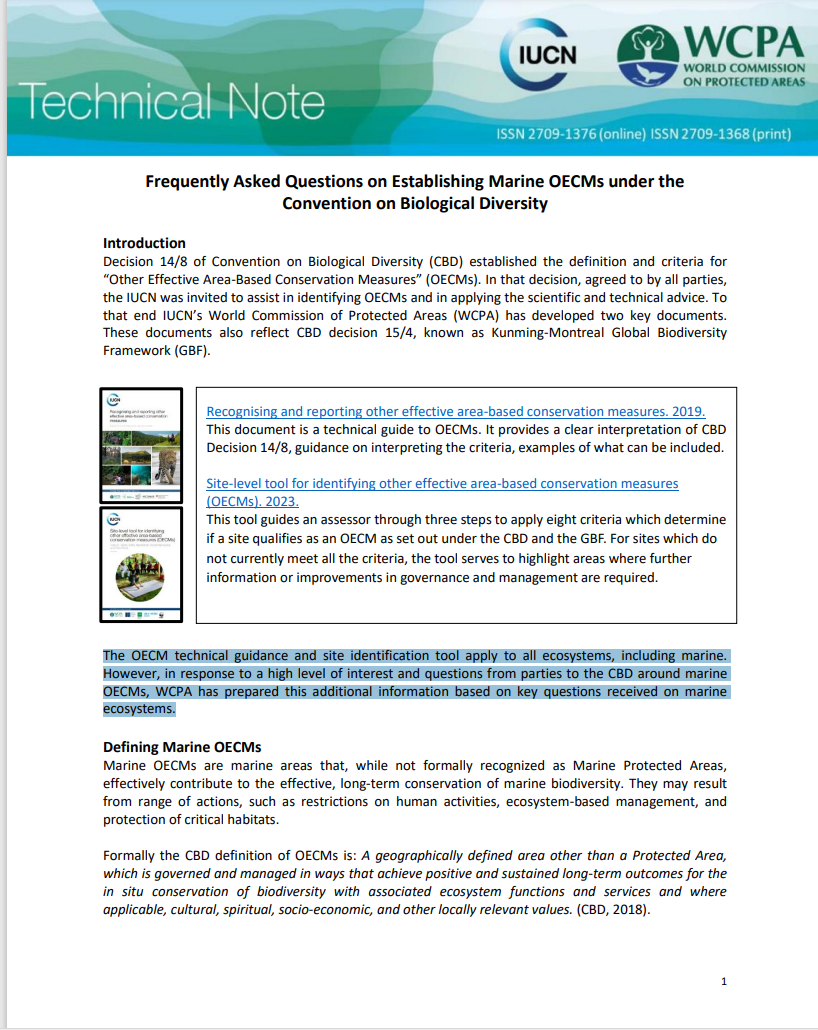Deep Seabed Mining and Human Rights, UN OHCHR side-event
 Photo: IUCN
Photo: IUCN
(For further details on the live event, please view the PDF - see also link above)
The ocean moderates the climate, influences our weather and supports rich and diverse cultural
practices, food security and livelihoods. All life on earth is dependent upon healthy ocean ecosystems.
Deep Seabed Mining (DSM) is the extraction of mineral deposits from the deep sea (mostly in the High
Seas). There is mounting scientific evidence that if DSM becomes an industry, it will have irreversible
environmental consequences for fisheries, tourism, Indigenous Peoples, coastal communities’
livelihoods and ocean ecosystems already being stressed to breaking point by the triple planetary
crisis: climate change, biodiversity loss and pollution.
Even where scientific evidence is not conclusive, the application of the precautionary principle requires
States to act cautiously and diligently to avoid steps that may cause harm to human health or the
environment. The Office of the United Nations High Commissioner for Human Rights (OHCHR)
published a brief on the topic of DSM, confirming a connection between, and the potential for negative
impact, from this quickly developing industry on human rights.
DSM can negatively impact the human rights to a clean, healthy and sustainable environment, life,
health, food, water, housing, work, self-determination, and cultural rights, among others. These
adverse impacts are likely to be felt most by Indigenous Peoples, coastal and island communities, and
people who depend on the ocean for their livelihoods, (for reference between 10-40% of the global
population depends on or lives close to the ocean) and whose traditional and spiritual beliefs are linked
to the deep sea. Given most of the seabed is the common heritage of humankind, proposals to permit
resource extraction by business enterprises pose particular governance concerns.
While governments are in the process of negotiating the commercial exploitation of the minerals on
the seabed, views representing the wide range of stakeholders potentially impacted are often missing
in these discussions.
The UN Human Rights Council event
The aim of this event is to introduce and explore the links and considerations between DSM and human
rights with relevant experts. How the impact of DSM on the environment might lead to adverse
impacts on human rights, in particular the human right to a clean, healthy and sustainable environment
and related rights, and what the current industrial sector should plan to manage this risk.




